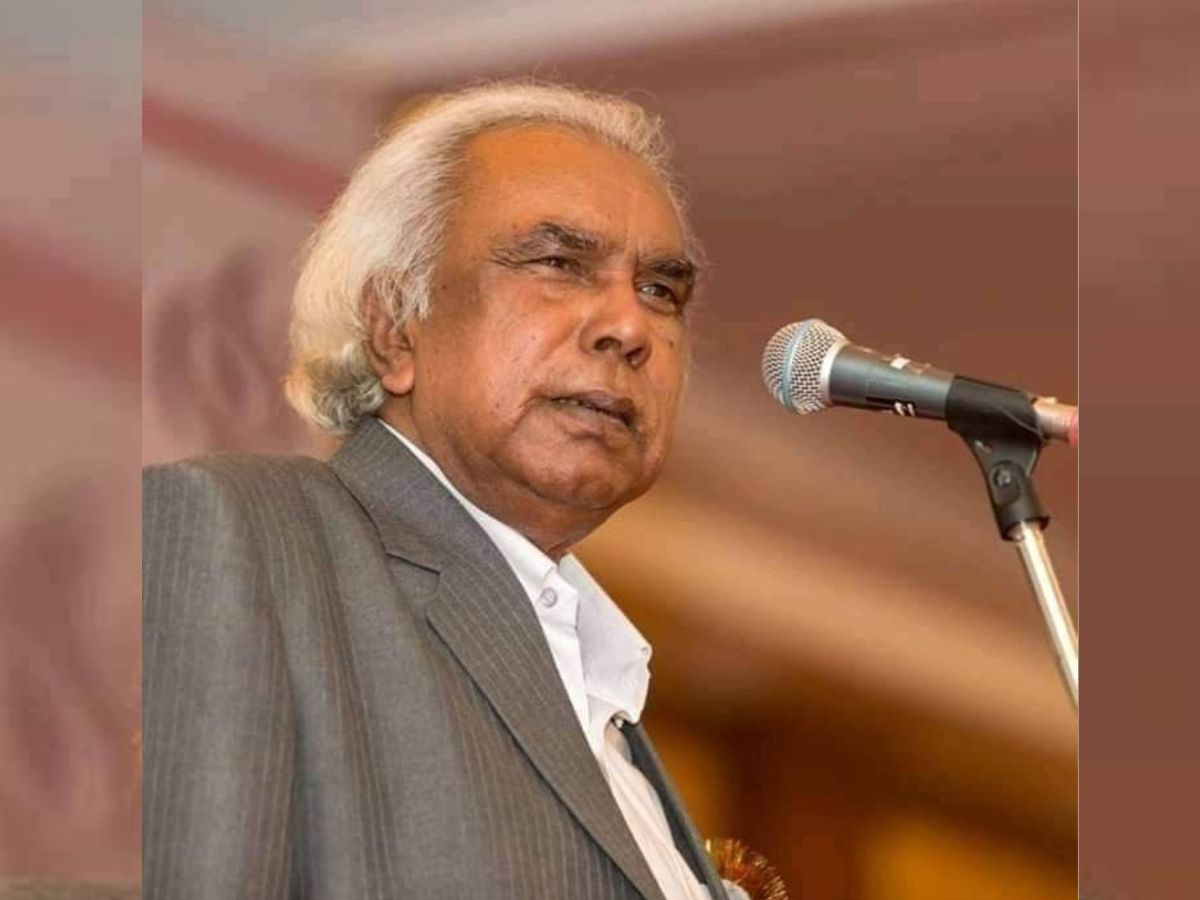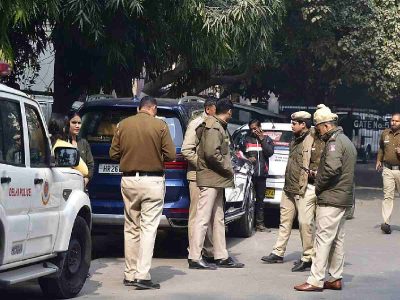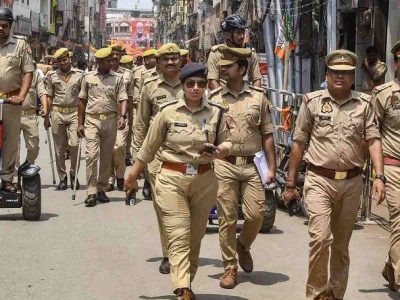Delhi’s shayri (poetry) mehfils fell silent as Haseeb Soz breathed his last on September 6. Soz had studied in Delhi’s Jamia Millia Islamia and had written six books on shayri. His latest Ye ishq nahi aasan was published recently. This article contains this correspondent’s last and exclusive interview with him, taken a few months back over the phone.
His Facebook posts used to be filled with Urdu couplets that would receive immense applause from most well-read poets, common men and women and seniors. The couplets used to be on the apathy of bureaucratic affairs and officers, rich treating less rich or poor like nobodies, wealth over conscience, the pain of the educated lot hidden behind a sophisticated smile, and a longing for someone who would understand him.
Towards the last few days, his posts read of ultimate peace he was looking for, waiting for none and a feeling of the short trip to this mortal world getting over. He had expressed
Koi awaaz de kar dekh le, mud kar na dekhenge
Muhabbat tere ik ik teer se bahar nikal aaye
Dar o diwar bhi ghar ke bohot mayoos they hum se
So hum bhi raat is jageer se nikal aaye
(I won’t look back if anyone calls out, O love I have freed myself from your chains
The walls of my home is fed up of me, so this night I freed myself from this property)
The words came prophetic. The uncommon shayar of the common man Haseeb Soz’s same Facebook posts read on the day he died, “My father Haseeb Soz has expired today morning. Please pray for his salvation” by his son in Urdu/Hindi.
The admirers fell silent with grief. Then slowly one by one they gathered courage to share his post, feeling how it looks to be sharing the news of the death of a poet from his own post!
On a long call over the phone one day, Haseeb sahib called up this correspondent at 7.30 a.m. and said, “I can see that you admire and comment on each of my shayri. So I thought, let me know you better; so I have called you. I hope you wouldn’t mind?”
The wisdom man shares is what makes him a poet and why, what he thinks of younger generation, and how shayri/poetry is the food for soul.
“The standard of your shayri is sky high” one said.
“Arrey nahi, ye to aap logon ki muhabbat hai” (this is your love speaking).”
He would feel shy taking compliments even at this age.
Soz lifted the standards of shayri, by speaking about the pain of the poor and the middle-class with dignity and respect. Take this one for instance:
Hamesha ghar se nikalte hain muskurate hue
Shaoormandon ke dard bhi ajeeb hote hain
(Sophisticated people would come out of home smiling, hiding pain beguiling all)
Soz would proudly tell he hailed from the city of “buzurg and shayars”, Badaun in U.P, while living in Delhi for work.
Apart from Shakeel Badayuni who made a name for himself and the city after he wrote lyrics for films, Soz had named Fani Badayuni and Mehndi Badayuni among the tallest “God-gifted” Urdu shayars from the city.
Soz rued that one Kumar Rahi had stolen Mehndi Badayuni’s ultimate couplet and in a film Amitabh Bachchan used it in a bar, certainly made the sher popular but robbed it of its original creator. The couplet was
Ab to utni bh mayassar nahi maykhane main
Jitni hum chor diya karte they maykhane main
(Not even the residue of wine I used to leave in my glass,
is available to me now in the bar)
Full of praises for Badayun women shayaras such as Zehra Nigah and Ismat Chughtai, Saira Bano, he broke into a couplet by Bano:
Kuredta hai bohot raakh meri mazi ki
Main chook jaoon to voh ungliyan jala dega
([He] digs the ashes of my past too much, If my mind slips, my fingers would burn).
Such couplets, he would insist just dawn.
“Socha samjha sher, kabhi sher nahi hota. Sher vo hota hai, jiski aamad hoti hai (No real couplet is borne out of thought, a couplet is one that just dawns)
An honest, simple and true shayar Soz reflected the pain of a poor farmer/labourer in these words
Vo sar jhukaye jisey jaa nasheen hona hai, hamare paoan ki mitti hi hamara sona hai
Vo aur honge jinhe Eid ki khushi hogi, hume to kal bhi purani kameez dhona hai
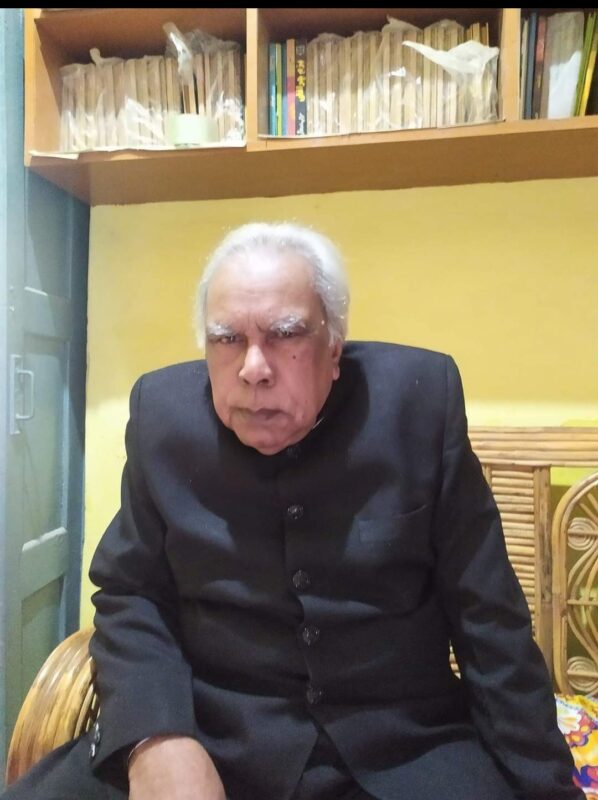
On how he was introduced to shayri, Soz had said, “I am a small particle in the mammoth world of shayri. I don’t know how shayri came into me. I am the first person in my family to be a poet. They were into business. My father had a sweet shop (Habbu Pedhe Waale), had no connection with sher-o-shayri. They may not have ever thought that I would become a shayar, would go to mehfils to read out my creations or appear on television. I think the meaningful songs of old Hindi films had lot of thoughts woven, hearing them, perhaps was my initial grooming into the world of poetry.”
Soz believed that shayri should not have an elitist attitude; it should be simple and understandable by a layman too.
“Shayri ki zabaan aasan hona chahiye. Jisey log sunkar samajh jayain aur iski gehrai main bhi utar sakain (Poetry should be said in easy language which people should understand and appreciate).
Soz often used Hindi and English words in his poetic creations.
It is important to note that Soz came from a well-off family but he felt the pain of the deprived and penned their pain like he felt it. Sample this
Jinke lahoo se hoti hai kheti kapaas ki
Unke yahan hai aaj bhi qillat libas ki
(Those who create cotton for us, are deprived of clothes themselves).
Soz told this correspondent, “I always felt why someone is suffering from poverty, miseries of other kinds and I felt like it was my pain. Seeing them, would result in a couplet each time.”
He continues with the same ghazal
Shadi hui ke ghar ki zaroorat ne kha liya
Ab tak padhi hui hain kitabain chauthi kilaas ki
Aansoo bharo, sharab bharo ya lahu bharo
Auqaat kuch nahi hai khali gilas ki
Soz is known for giving immense space to self-respect in his shayri. For instance,
Hath aur paaon kisi ke hon, kisi ka sar ho
Is tarah qad ko nahi badhana chahte hum
Apni ghairat ke liye faqakashi bhi manzoor
Teri sharton par khazana bhi nahi chahte hum
Aankh jab di hai to nazara bhi dey ya rab
Aik kamre main zamana bhi nahi chahte hum
(With limbs and feet belonging to some else, I don’t want such a heighted head,
For self-respect, I can remain hungry, on your conditions, I reject wealth
If you have given me eyes. (o God), show it the world’s pleasures too
One room isn’t sufficient for everything)
Soz was also upset about changing world of mushairas (poetry events).
“I never liked groupism in shayri. I never walked in groups or lobbies. Mushairas are now ‘you scratch my back, I scratch yours’ shows now. Earlier, one good sher would travel across the world on its own. Now it needs artificial means to climb,” he had minced no words.
He added, “These days, women poetesses (shayraas) had lowered the dignity of mushairas. They dress in expensive attire and read out their shayri with all ‘naaz—andaaz’ (artificiality) and style which is unbecoming of a decent mushairas.”
He had cited example of Parvin Shakir (of Pakistan, whose parents were from Bihar), who would not only be dignified on stage but always said couplets on Ishq (love) with dignity they deserve.
Soz cited this sher for an example, Main uski das-tarast main hoon lekin, Vo mujhe meri raza se mangta hai (I am in his reach yet, he seeks my permission to be available [to him]).
Another concern that bothered him always was that young poetry/shayri lovers write their so-called verses and put Ghalib, Gulzar and John Elia’s name on it.
“These are people who are walking on crutches- others’ crutches. And such people don’t go far. So many such so-called shayars came and vanished.”
Also, he had said, “Today there is just one problem with youngsters who claim their love for shayri.”
What’s that?
“They want to become Meer and Ghalib in a week’s time.”
Today’s youth he would say talk about love and ishq without understanding its depth.
Quoting Majrooh Sultanpuri, he said, “I will tell you what real ishq shayri (love poetry) is.”
Sample this.
Pehle sau bar idhar aur udhar dekha hai
Tab kahin ja ke kahin tumhe aik nazar dekha hai
(I saw here and there umpteen times, to have just a glimpse of yours)
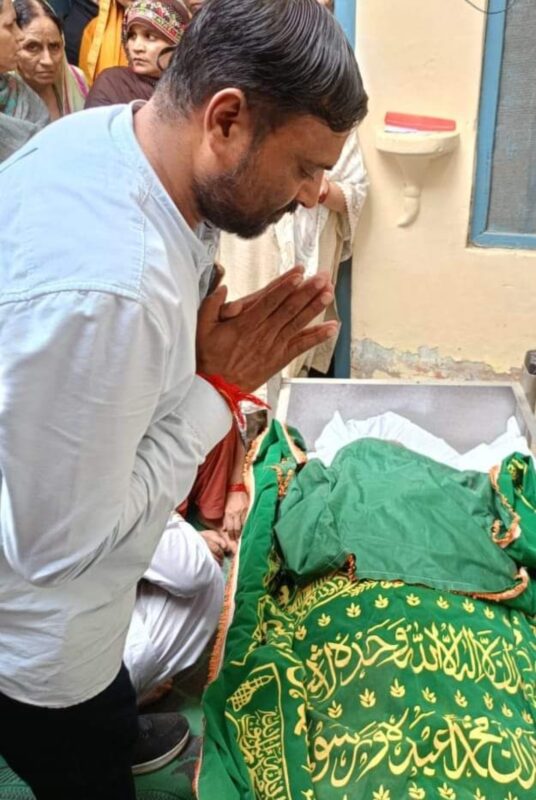
“Ishq mein main purani tehzeeb ka qayal hoon,” (I am old-fashioned in expressing love through my creations). Saying this he had recited this couplet of his,
Vo chaand dekhne agar chhat par chadha hoga
Ghareeb chaand bhi badi mushkil main padh gaya hoga
(If she came up the roof to see the moon, poor moon must have been in trouble)
Soz’s one sher befits his leaving this abode
Vo aik raat ki gardish main itna haar gaya
Libaas pehne raha aur badan utaar gaya
(He felt so defeated in just a night’s fall, he took off his body, but wore clothes)
Bazm-e- Adab, Badaun has announced an All India Mushiara in his memory of which dates would soon be announced.
(The writer is Delhi-based senior journalist, co-author of Muslims in Media, poet, and music curator.)

